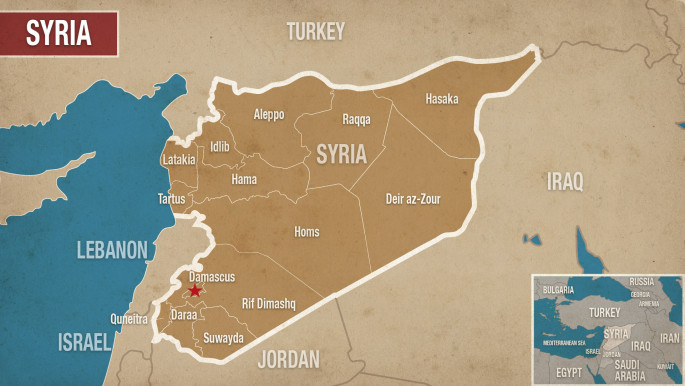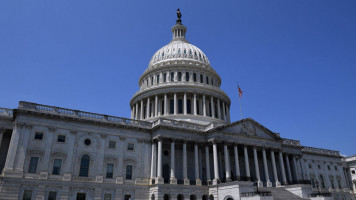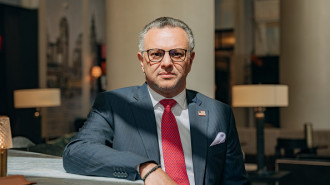Fresh Syria peace talks begin in Astana
A fresh round of peace talks seeking to end Syria's war opened in the Kazakh capital Astana on Monday, as part of a Moscow-led push supported by Iran and opposition backer Turkey.
The latest round of talks begins days after the Islamic State group was forced out of its de facto capital Raqqa in northern Syria, in a major victory for the US-backed Kurdish-Arab Syrian Democratic Forces.
Recent rounds of talks in the Central Asian nation have focused on ironing out the details of a Russia-led plan for four de-escalation zones in Syria.
"Closed-format talks have begun," Kazakh foreign ministry spokesman Anuar Zhainakov told AFP, adding that the two-day negotiations would conclude with statements to the media.
Zhainakov confirmed that delegations from the Syrian government and the rebels seeking President Bashar Assad's overthrow had arrived in Astana, as had negotiators from Turkey and regime backers Russia and Iran.
Despite backing opposite sides in the war, Ankara and Moscow have been working closely on Syria since a 2016 reconciliation ended a crisis caused by the shooting down of a Russian jet.
A de-escalation zones plan was first tabled in Astana in May to minimize fighting between regime forces and moderate rebel factions, as well as improve access for aid for civilians living in the zones.
But international organisations painted the humanitarian situation in Eastern Ghouta - covered by the zones deal and located just outside the capital Damascus - in dire terms earlier this month.
UNICEF says more than a thousand children in the area are suffering from severe, acute or moderately acute malnutrition, with more than 1,500 more at serious risk, as aid convoys have failed to reach needy populations.
While the de-escalation zones brought about an initial reduction in fighting, the International Red Cross has voiced concern that the violence has intensified again, including in the zones.
Small progress
Previous rounds of Astana negotiations have ended without major breakthroughs, but they have made more progress than the parallel UN-driven talks on Syria in Geneva.
The last round of talks in September saw Russia, Turkey and Iran agree to jointly police a buffer zone in the contentious northern province of Idlib, where Ankara and Tehran are viewed as having competing interests.
Zones covering part of the south of the country, Eastern Ghouta, and the central province of Homs had already been agreed during a previous round of talks. Russian military police were then deployed to secure the areas.
Syria's United Nations envoy Staffan de Mistura urged parties to move on from the zones towards "a more stable political settlement" during a mid-October visit to Moscow.
The next round of Geneva talks will begin on November 28, De Mistura has said.
The Syrian conflict began when the Baath regime, in power since 1963 and led by Assad, responded with military force to peaceful protests demanding democratic reforms during the Arab Spring wave of uprisings, triggering an armed rebellion fueled by mass defections from the Syrian army.
Russia has been operating a bombing campaign in Syria since 2015, when it stepped in to support Assad's rule and tipped the conflict in his favour. Human rights monitors say that the raids have resulted in many civilian casualties.
The brutal tactics pursued mainly by the regime, which have included the use of chemical weapons, sieges, mass executions and torture against civilians have led to war crimes investigations.
Rebels still insist on Assad's removal from power as a principal term for any peace deal.
![Astana [Getty] Astana [Getty]](/sites/default/files/styles/large_16_9/public/media/images/98E073B5-ED77-4321-8DC4-48830EE9CF5A.jpg?h=d1cb525d&itok=VwaaHtRC)

![Palestinians mourned the victims of an Israeli strike on Deir al-Balah [Getty]](/sites/default/files/styles/image_684x385/public/2024-11/GettyImages-2182362043.jpg?h=199d8c1f&itok=xSHZFbmc)


![The law could be enforced against teachers without prior notice [Getty]](/sites/default/files/styles/image_684x385/public/2178740715.jpeg?h=a5f2f23a&itok=hnqrCS4x)
 Follow the Middle East's top stories in English at The New Arab on Google News
Follow the Middle East's top stories in English at The New Arab on Google News


